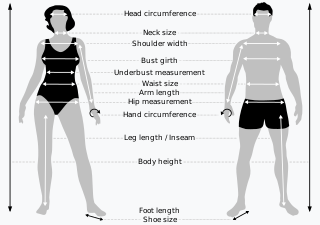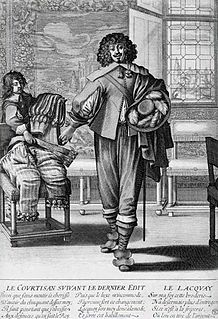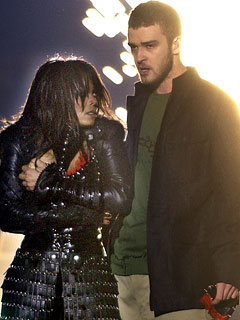 W
WBig Johnson is a brand known for its T-shirts featuring E. Normus Johnson depicted in comic art featuring sexual innuendos. At the height of Big Johnson's prominence in the 1990s, it sponsored a Big Johnson NASCAR automobile and the managing company was twice listed in the Inc. list of America's fastest growing companies. The sexual innuendo has been controversial leading to court rulings banning sales in federal buildings and corporate decisions banning wearing the shirts. Big Johnson is marketed by Maryland Brand Management, Inc. (MBM), the successor company to Maryland Screen Printers Inc. (MSP) and G & C Sales, Inc.
 W
WBikini waxing is the removal of pubic hair using a special wax, which can be hot or cold, that adheres to hairs and pulls them out when the wax is removed quickly from the skin, usually with a cloth strip. While the practice is mainly associated with women, male waxing is sometimes done to remove men's pubic hair.
 W
WA black bloc is a tactic used by protesters who wear black clothing, ski masks, scarves, sunglasses, motorcycle helmets with padding, or other face-concealing and face-protecting items. The clothing is used to conceal wearers' identities and hinder criminal prosecution by making it difficult to distinguish between participants. It is also used to protect their faces and eyes from pepper spray, which is used by police during protests or civil unrest. The tactic allows the group to appear as one large unified mass. Black bloc participants are often associated with anarchism, anarcho-communism, communism, libertarian socialism or the anti-globalization movement.
 W
W"Boys are stupid, throw rocks at them!" is a slogan on a T-shirt by Florida clothing company David and Goliath which in 2003 became the subject of a campaign by radio-host and men's rights activist Glenn Sacks on the grounds of misandry and the incitement of violence against children. This raised national attention and led to the removal of the shirts from several thousand retail outlets.
 W
WIn Western society, since the 1960s, there has been a slow but steady trend towards bralessness among a number of women, especially millennials, who have expressed opposition to and are giving up wearing bras. In 2016, Allure magazine fashion director Rachael Wang wrote, "Going braless is as old as feminism but it seems to be bubbling to the surface more recently as a direct response to Third Wave moments like #freethenipple hashtag campaign, increased trans-visibility like Caitlyn Jenner's Vanity Fair cover ... and Lena Dunham’s show Girls."
 W
WCamel toe, or cameltoe, is slang for the outline of a woman's labia majora in tightly fitting clothes. Owing to a combination of anatomical factors and the tightness of the fabric covering the area, the crotch and mons pubis may display a shape resembling the forefoot of a camel. Camel toe commonly occurs as a result of wearing tight-fitting clothes, such as leggings, shorts, hotpants or swimwear.
 W
WThe Channar Lahala or Channar revolt, also called Maru Marakkal Samaram, refers to the fight from 1813 to 1859 of Nadar climber women in Travancore kingdom of India for the right to wear upper-body clothes to cover their breasts.
 W
WThe Chess World Cup 2017 was a 128-player single-elimination chess tournament, held in Tbilisi, Georgia, from 2 to 27 September 2017. It was won by Armenian grandmaster Levon Aronian. This was the second time he had won the Chess World Cup, 12 years after his first win in 2005. It was the 7th edition of the Chess World Cup.
 W
WClothing size refers to the label sizes used for garments sold off-the-shelf. There are a large number of standard sizing systems around the world for various garments, such as dresses, tops, skirts, and trousers. Made-to-order garments require measurements to be taken, but these do not need to be converted into national standard form.
 W
WA clothing-optional bike ride is a cycling event in which nudity is permitted or expected. There are many clothing-optional cycling events around the world. Some rides are political, recreational, artistic or a unique combination. Some are used to promote topfreedom, a social movement to accord women and girls the right to be topless in public where men and boys have that right.
 W
WThe corset controversy concerns supporters' and detractors' arguments for and against wearing a corset. The controversy was contemporary with the time that corsets were popular in society. Corsets, variously called a pair of bodys or stays, were worn by European women from the late 16th century onward, changing their form as fashions changed. In spite of radical change to fashion geographically and temporally, the corset or some derivative beneath an outer gown shaped the body or provided structure.
 W
WCross-dressing is the act of wearing items of clothing not commonly associated with one's sex. Cross-dressing has been used for purposes of disguise, comfort, comedy, and self-expression in modern times and throughout history.
 W
WA diaper /ˈdaɪpə(r)/ or a nappy is a type of underwear that allows the wearer to urinate or defecate without using a toilet, by absorbing or containing waste products to prevent soiling of outer clothing or the external environment. When diapers become wet or soiled, they require changing, generally by a second person such as a parent or caregiver. Failure to change a diaper on a sufficiently regular basis can result in skin problems around the area covered by the diaper.
 W
WFur is no longer primarily obtained through animal trapping; most fur comes from farms, where animals are raised to be killed for their fur. Fur farming operations provide about 80 percent of overall fur production. Common sources of fur include mink, raccoon, and fox. Up to 30 million mink furs are produced annually in North America and Europe. The production of pelts involves large-scale tanning and disposal of animal carcasses after they are skinned. Fur production reportedly impacts the environment negatively through the release of gases, chemicals and fossil fuels.
 W
WFashion Revolution is a not-for-profit global movement represented by The Fashion Revolution Foundation and Fashion Revolution CIC with teams in over 100 countries around the world. Fashion Revolution campaigns for reform of the fashion industry with a focus on the need for greater transparency in the fashion supply chain. Starting in 2013, Fashion Revolution has designated the anniversary of the Rana Plaza disaster in Bangladesh as Fashion Revolution Day and holds events each year. Between 2014 and 2020, millions of people around the world called on brands to answer the question Who Made My Clothes? The hashtag #WhoMadeMyClothes became the no.1 global trend on Twitter. They have faced criticisms specifically about the Transparency Index.
 W
WFur clothing is clothing made of furry animal hides. Fur is one of the oldest forms of clothing, and is thought to have been widely used as hominids first expanded outside Africa. Some view fur as luxurious and warm; others reject it due to personal beliefs of animal rights. The term 'fur' is often used to refer to a coat, wrap, or shawl made from the fur of animals. The most popular kinds of fur in the 1960s were blond mink, silver striped fox and red fox. Cheaper alternatives were pelts of wolf, Persian lamb or muskrat. It was common for ladies to wear a matching hat. In the 1950s, a must-have type of fur was the mutation fur and fur trimmings on a coat that were beaver, lamb fur, Astrakhan and mink.
 W
WFur farming is the practice of breeding or raising certain types of animals for their fur.
 W
WGel bracelets are a type of wristband often made from silicone.
 W
WGuidance Patrol, also known as Fashion police or Morality police, is a kind of vice squad in the Law Enforcement Force of the Islamic Republic of Iran, established in 2005 with the task to arrest mostly women who deem improperly dressed according to the dress code.
 W
WThe Hat Act is a former Act of the Parliament of Great Britain enacted in 1732 to prevent and control hat production by the colonists in British America.
 W
WA high heel policy is a regulation or law about the wearing of high heels, which may be required or forbidden in different places and circumstances.
 W
WAdolf Hitler was the leader of the Nazi Party and Chancellor of Nazi Germany from 1933 to 1945. Hitler has been represented in popular culture ever since he became a well-known politician in Germany. His distinctive image was often parodied by his opponents. Parodies became much more prominent outside Germany during his period in power. Since the end of World War II representations of Hitler, both serious and satirical, have continued to be prominent in popular culture, sometimes generating significant controversy. In many periodicals, books, and movies, Hitler and Nazism fulfill the role of archetypal evil. This treatment is not confined to fiction but is widespread amongst nonfiction writers who have discussed him in this vein. Hitler has retained a fascination from other perspectives; among many comparable examples is an exhibition at the German Historical Museum which was widely attended.
 W
WAmerican actress and model Jayne Mansfield, known for her publicity stunts, attended a dinner at the exclusive Beverly Hills Romanoff's restaurant hosted by Paramount Pictures to officially welcome Italian actress Sophia Loren to Hollywood. A photograph of the two women, with Loren casting a sideways glance at Mansfield's cleavage, was distributed world-wide and became an international sensation.
 W
WAt the 2010 MTV Video Music Awards, American singer Lady Gaga wore a dress made of raw beef, which was commonly referred to by the media as the meat dress. Designed by Franc Fernandez and styled by Nicola Formichetti, the dress was condemned by animal rights groups, and named by Time magazine as the top fashion statement of 2010.
 W
WOutside Western cultures, men's clothing commonly includes skirts and skirt-like garments; however, in North America and much of Europe, the wearing of a skirt is today usually seen as typical for women and girls and not men and boys, the most notable exceptions being the cassock and the kilt. People have variously attempted to promote the wearing of skirts by men in Western culture and to do away with this gender distinction, however skirts have been a female garment since the 16th Century, and was left behind by men due to a cultural convention along the time, albeit with limited general success and considerable cultural resistance.
 W
WA missing sock, lost sock, or odd sock is a single sock in a pair of socks known or perceived to be permanently or temporarily missing. According to popular media articles regarding missing socks, people almost always report losing one sock in a pair, and hardly ever the entire pair of two socks. Socks are usually perceived to be lost immediately before, during, or immediately after doing laundry. Various explanations or theories—some scientific or pseudo-scientific and others humorous or facetious—have been proposed to show how or why single socks go missing or are perceived to have gone missing. The terms odd sock or mismatched sock may refer to the remaining "orphaned" sock in a pair where the other matching sock is missing or lost.
 W
WNude recreation refers to recreational activities which some people engage in while nude. Historically, the ancient Olympics were nude events. There remain some societies in Africa, Oceania, and South America that continue to engage in everyday public activities—including sports—without clothes, while in most of the world nude activities take place in either private spaces or separate clothing optional areas in public spaces. Occasional events, such as nude bike rides, may occur in public areas where nudity is not otherwise allowed.
 W
WThe nylon riots were a series of disturbances at American stores created by a nylon stocking shortage.
 W
WOn August 28, 2014, U.S. President Barack Obama held a live press conference on increasing the military response against the Islamic State (ISIS) in Syria while wearing a tan suit. Obama's appearance on television in the tan suit sparked significant attention and led to media and social media criticism. The issue remained prominent in the media for several days with the issue being particularly widely discussed on talk shows.
 W
W"Pants on the Ground" is a novelty/protest song which, in 2010, became the first single that civil rights activist "General" Larry Platt, who co-wrote it, released. The song is meant to protest the practice of sagging. It was released on American King Music on February 4, 2010. The song became an internet meme after being performed during the Atlanta audition for American Idol that aired on January 13, 2010.
 W
WA Private View at the Royal Academy, 1881 is a painting by the English artist William Powell Frith exhibited at the Royal Academy of Arts in London in 1883. It depicts a group of distinguished Victorians visiting the Royal Academy Summer Exhibition in 1881, just after the death of the Prime Minister Benjamin Disraeli, whose portrait by John Everett Millais was included on a screen at the special request of Queen Victoria. The room is Gallery III, the largest and most imposing room at Burlington House.
 W
WSagging is a manner of wearing trousers or jeans that sag so that the top of the trousers or jeans is significantly below the waist, sometimes revealing much of the wearer's underpants.
 W
WWearing socks and sandals together is a controversial fashion combination and social phenomenon that is discussed in various countries and cultures. In some places it is considered a fashion faux pas.
 W
WA Statute Concerning Diet and Apparel was a sumptuary law introduced by the Parliament of England in 1363. It was one of a series of laws over a couple of centuries that form what are known as the Acts of Apparel.
 W
WSumptuary laws are laws that try to regulate consumption. Black's Law Dictionary defines them as "Laws made for the purpose of restraining luxury or extravagance, particularly against inordinate expenditures for apparel, food, furniture, etc." Historically, they were intended to regulate and reinforce social hierarchies and morals through restrictions on clothing, food, and luxury expenditures, often depending on a person's social rank.
 W
WThe Super Bowl XXXVIII halftime show took place on February 1, 2004 at the Reliant Stadium in Houston, Texas as part of Super Bowl XXXVIII. It featured Janet Jackson, Justin Timberlake, P. Diddy, Nelly, Kid Rock, and Jessica Simpson.
 W
WThe halftime show at Super Bowl XXXVIII, which was broadcast live on February 1, 2004, from Houston, Texas, on the CBS television network, is notable for a moment in which Janet Jackson's breast—adorned with a nipple shield—was exposed by Justin Timberlake to the viewing public for approximately half a second. The incident, sometimes referred to as Nipplegate or Janetgate, led to an immediate crackdown and widespread debate on perceived indecency in broadcasting.
 W
WThe "sweater curse" or "curse of the love sweater" is a term used by knitters to describe the belief that if a knitter gives a hand-knit sweater to a significant other, it will lead to the recipient breaking up with the knitter. In an alternative formulation, the relationship will end before the sweater is even completed. The belief is widely discussed in knitting publications, and some knitters claim to have experienced it. In a 2005 poll, 15% of active knitters said that they had experienced the sweater curse firsthand, and 41% considered it a possibility that should be taken seriously.
 W
WA sweatshop or sweat factory is a crowded workplace with very poor, socially unacceptable or illegal working conditions. The work may be difficult, dangerous, climatically challenging or underpaid. Workers in sweatshops may work long hours with low pay, regardless of laws mandating overtime pay or a minimum wage; child labor laws may also be violated. The Fair Labor Association's "2006 Annual Public Report" inspected factories for FLA compliance in 18 countries including Bangladesh, El Salvador, Colombia, Guatemala, Malaysia, Thailand, Tunisia, Turkey, China, India, Vietnam, Honduras, Indonesia, Brazil, Mexico, and the US. The U.S. Department of Labor's "2015 Findings on the Worst Forms of Child Labor" found that "18 countries did not meet the International Labour Organization's recommendation for an adequate number of inspectors."
 W
WSwedish Dress Reform Association was a Swedish women's association, active from 1886 to 1903. It was a part of the Victorian dress reform, and worked to reform women's dress toward a more healthy and comfortable one, including abolishing the corset. The movement attracted a lot of attention and achieved some success during its duration, such as making corsets unfashionable among school girls.
 W
WThe tignon law was a 1786 law enacted by the Spanish Governor of Louisiana Esteban Rodríguez Miró that forced black women to wear a tignon headscarf. The law was intended to halt plaçage unions and tie freed black women to those who were enslaved, but the women who followed the law have been described as turning the headdress into a "mark of distinction".
 W
WVictorian dress reform was an objective of the Victorian dress reform movement of the middle and late Victorian era, led by various reformers who proposed, designed, and wore clothing considered more practical and comfortable than the fashions of the time.
 W
WWhale tail is the Y-shaped waistband of a thong or G-string when visible above the waistline of low-rise jeans, shorts, or a skirt that resembles a whale's tail. Popularized by a number of female celebrities including Christina Aguilera, Victoria Beckham, Mariah Carey, Paris Hilton and Britney Spears, displaying whale tails became popular in the early 2000s, together with the rise of low-rise jeans and thong underwear; but waned within the decade.
 W
WTrousers or pants first appeared in recorded history among nomadic steppe-people in Western Europe. Steppe people were a group of nomads of various different ethnic groups that lived in the Eurasian grasslands. Archaeological evidence suggests that men and women alike wore trousers in that cultural context. However, for much of modern history, the use of trousers has been restricted to men. In many regions, this norm was enforced not only by social custom but also by law. There are, however, many historical cases of women wearing trousers in defiance of these norms such as the 1850s women rights movement and for a variety of reasons, including comfort, freedom of movement, fashion, disguise, attempts to evade the gender pay gap, and attempts to establish an empowered public identity for women. Especially in the 20th and 21st centuries, the customs and laws restricting this manner of dress have relaxed dramatically, reflecting a growing acceptance and normalisation of the practice.
 W
WThe Zoot Suit Riots were a series of riots on June 3–8, 1943 in Los Angeles, California, United States, which pitted American servicemen stationed in Southern California against young Latino and Mexican American city residents. It was one of the dozen wartime industrial cities that suffered race-related riots in the summer of 1943, along with Mobile, Alabama; Beaumont, Texas; Detroit, Michigan; and New York City.